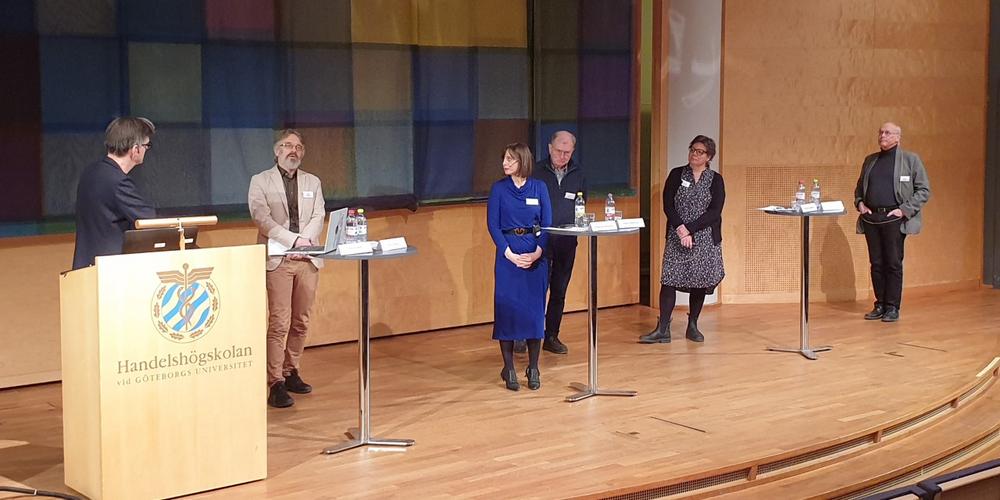European Research Day 2021: European Borderlands
CERGU arranged a successful event.
Area
Event
CERGU arranged a successful event.
During this year's European Research Day, participants discussed European borders and how they are created, crossed and challenged from a multidisciplinary perspective. Mats Andrén explained that the 19th century conceptualisation of Europe was linked to the emergence of the nation state and that national demarcations have become a sign of European integration and identity. Claes Alvstam pointed out that national borders within Europe shape life in border zones and maintain fixed dividing lines with the help of historical infrastructures. But the national borders within Europe are also porous. Ingmar Söhrman cited Catalan as an example. The language is spoken across several national borders, creates its own identity group and is mobilized today for national independence and new demarcations. Katarzyna Wojnicka has researched transnational protests mobilized in solidarity with Polish women whose sexuality is curtailed by Poland's ban on abortion. The social movement not only transcends national borders but also uses pan-European symbols and a common language. Katarina Leppänen, on the other hand, shows that the dialectical language from Aino Kalla's Estonian books was used to emphasize a local boundary towards the rootless, global cosmopolitan lifestyle of 20th century Europe. CERGU Director Klas Grinell concluded the day by emphasizing that despite its linguistic, literary, infrastructural, national and conceptual boundaries, Europe calls for cross-border activities. (Written by CERGU postdoc Maja Hultman)

